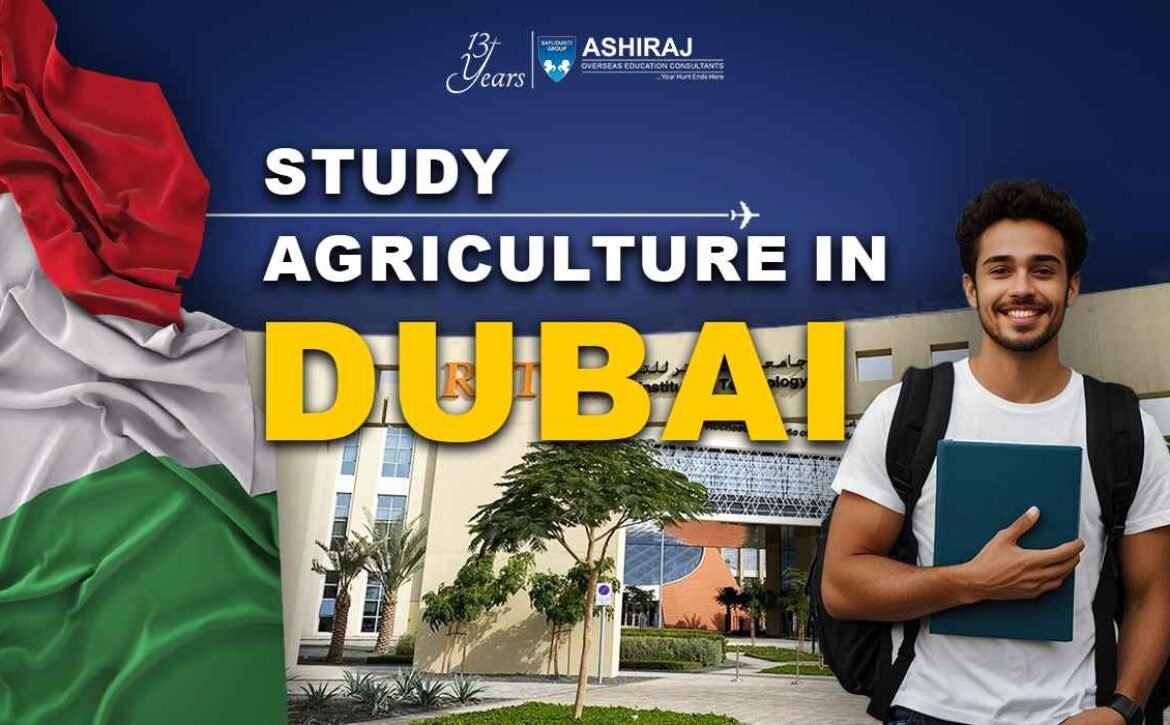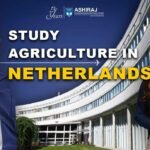
Agriculture in Dubai
Agriculture in Dubai represents a fascinating blend of traditional practices and cutting-edge technology amid a desert landscape. Despite the arid climate and limited arable land, Dubai has embraced innovative agricultural methods to ensure food security and sustainability. Through strategic initiatives and advancements in hydroponics, vertical farming, and controlled-environment agriculture, Dubai has been able to cultivate a variety of crops and meet the growing demand for fresh produce.
In recent years, Agriculture in Dubai has undergone a remarkable transformation, propelled by the government’s vision for economic diversification and self-sufficiency. With initiatives like the Dubai Food Security Strategy and the Dubai Future Foundation’s AgriTech Accelerator program, the emirate is leveraging technology and research to overcome environmental challenges and maximize agricultural productivity. As a result, Agriculture in Dubai is not only meeting local needs but also establishing the city as a global hub for sustainable farming practices and innovation.
Why to Study Agriculture in Dubai?
- Innovative Practices: Dubai offers a unique environment for studying agriculture due to its innovative farming practices tailored to arid climates.
- Global Hub: By studying agriculture in Dubai, students gain exposure to a global hub for agricultural innovation, research, and technology.
- Diverse Opportunities: The agriculture sector in Dubai presents diverse opportunities for students to explore various aspects such as hydroponics, vertical farming, and desert agriculture.
- Sustainability Focus: Dubai’s emphasis on sustainability in agriculture provides students with insights into sustainable farming techniques and environmental conservation.
- Economic Growth: With Dubai’s focus on agricultural development as part of its economic diversification strategy, studying agriculture here opens doors to potential career growth and opportunities in the sector.
- Networking: Studying agriculture in Dubai enables students to network with industry professionals, researchers, and policymakers in a dynamic and multicultural environment.
- Hands-On Experience: Many educational institutions in Dubai offer practical learning opportunities, allowing students to gain hands-on experience in agricultural practices relevant to the region.
- Contribution to Food Security: By studying agriculture in Dubai, students can contribute to the city’s efforts towards achieving food security and sustainability through innovative farming methods.
By delving into Agriculture in Dubai, students not only acquire knowledge and skills but also become part of a global movement towards sustainable agriculture in challenging environments.
Top Universities to Study Agriculture in Dubai
University | QS World University Ranking 2023 | Type of University | Average Annual Fees | Programs Offered |
University of Dubai | 351-400 | Private | $10,000 – $15,000 | Agriculture Engineering, Agribusiness |
American University Dubai | 401-450 | Private | $15,000 – $20,000 | Sustainable Agriculture, Horticulture |
Dubai Agricultural College | 451-500 | Public | $5,000 – $8,000 | Agricultural Sciences, Aquaculture |
Zayed University | 501-550 | Public | $8,000 – $12,000 | Environmental Agriculture, Food Security |
Murdoch University Dubai | 551-600 | Private | $12,000 – $18,000 | Precision Agriculture, Sustainable Farming |
- University of Dubai: Ranked between 351 and 400 by QS, this private institution offers programs like Agriculture Engineering and Agribusiness, with average annual fees ranging from $10,000 to $15,000.
- American University Dubai: Ranking between 401 and 450, it provides courses like Sustainable Agriculture and Horticulture, with fees averaging between $15,000 to $20,000.
- Dubai Agricultural College: Publicly funded and ranked 451-500, it offers Agricultural Sciences and Aquaculture programs, with fees ranging from $5,000 to $8,000 annually.
- Zayed University: Positioned between 501 and 550, this public institution offers Environmental Agriculture and Food Security programs, with average fees ranging from $8,000 to $12,000.
- Murdoch University Dubai: Ranking between 551 and 600, it offers courses like Precision Agriculture and Sustainable Farming, with fees averaging between $12,000 to $18,000.
Exploring these top universities in Dubai for Agriculture equips students with the knowledge and skills vital for addressing agricultural challenges in Dubai’s unique landscape, contributing to the advancement of Agriculture in Dubai.
Course Curriculum for Agriculture in Dubai
- Introduction to Desert Agriculture: Understanding the principles and challenges of agriculture in arid environments, focusing on innovative techniques suited to Dubai’s climate.
- Hydroponics and Vertical Farming: Exploring advanced methods of soilless cultivation and vertical farming to maximize crop yield and conserve water, crucial for Agriculture in Dubai.
- Sustainable Crop Management: Learning sustainable practices for crop cultivation, including pest and disease management, soil conservation, and organic farming methods.
- Agribusiness and Market Dynamics: Studying the economic aspects of agriculture, including market analysis, supply chain management, and entrepreneurship opportunities in Dubai’s agricultural sector.
- Water Resource Management: Addressing the importance of efficient water usage in agriculture, covering topics such as irrigation systems, water conservation, and desalination technologies.
- Precision Agriculture Technologies: Utilizing cutting-edge technologies like drones, GPS, and sensors for precision farming practices tailored to Dubai’s agricultural landscape.
- Climate Change Adaptation: Understanding the impacts of climate change on agriculture and developing strategies to mitigate risks and adapt farming practices accordingly in the context of Agriculture in Dubai.
- Research and Innovation: Engaging in research projects and practical applications of agricultural innovations, contributing to the advancement of Agriculture in Dubai through experimentation and innovation.
By incorporating these elements into the course curriculum, Agriculture in Dubai prepares students to address the unique challenges and opportunities present in the region’s agricultural sector.
Eligibility Criteria & Admission Requirements for MS in Agriculture in Dubai
- Language Proficiency: Applicants must demonstrate proficiency in English through standardized tests such as IELTS or TOEFL with minimum scores of 6.5 for IELTS and 80 for TOEFL.
- Academic Aptitude: Candidates are required to submit scores from standardized tests like GRE or GMAT, with minimum scores of 300 for GRE and 550 for GMAT.
- Passport & Student Visa: Prospective students must possess a valid passport and obtain a student visa to study in Dubai, complying with immigration regulations.
- Academic Certificates: Applicants must provide academic certificates demonstrating completion of relevant undergraduate studies in fields related to agriculture or related disciplines.
- Work Experience: While not always mandatory, some programs may require applicants to have relevant work experience in agriculture or related fields to enhance their candidacy.
IELTS, TOEFL, GRE, and GMAT Scores Table:
Test | Minimum Score |
IELTS | 6.5 |
TOEFL | 80 |
GRE | 300 |
GMAT | 550 |
Meeting these eligibility criteria ensures that candidates are equipped with the necessary language proficiency, academic readiness, and documentation to pursue studies in Agriculture in Dubai, facilitating their academic and professional journey in the field.
Documents Required for Studying Agriculture in Dubai
- Passport: A valid passport with a minimum validity period as per Dubai immigration regulations.
- Two Letters of Recommendation (LOR): Letters from academic or professional referees endorsing the applicant’s suitability for the agriculture program in Dubai.
- Statement of Purpose (SOP): A written statement outlining the applicant’s academic and career goals, as well as their motivation for pursuing studies in Agriculture in Dubai.
- Curriculum Vitae (CV): A comprehensive resume detailing the applicant’s educational background, work experience, skills, and achievements relevant to Agriculture in Dubai.
- Official High School Transcripts Certificates: Certified transcripts of academic records from high school or equivalent, demonstrating the applicant’s academic proficiency.
- Work Experience Certificate: If applicable, a certificate verifying the applicant’s relevant work experience in agriculture or related fields.
- Proof of Financial Resources: Documentation demonstrating the applicant’s ability to cover tuition fees, living expenses, and other financial obligations during their study period in Dubai.
By furnishing these documents, applicants can ensure a smooth application process for Agriculture in Dubai programs, facilitating their academic pursuits in the field.
Admission Process for Agriculture in Dubai
- Research and Shortlist: Research universities offering agriculture programs in Dubai, considering factors like curriculum, faculty expertise, and facilities, aligning with your academic and career goals in Agriculture in Dubai.
- Check Eligibility: Review the admission criteria, ensuring you meet requirements related to academic qualifications, language proficiency (IELTS or TOEFL), and standardized test scores (GRE or GMAT).
- Gather Documents: Collect necessary documents including passport, academic transcripts, letters of recommendation, statement of purpose, CV, work experience certificates, and proof of financial resources, essential for the application process in Agriculture in Dubai.
- Submit Application: Complete the online application form for your chosen universities, providing accurate information and uploading required documents as per their guidelines, ensuring compliance with deadlines for Agriculture in Dubai programs.
- Appear for Interviews (if required): Prepare for and attend any interviews or assessments as part of the admission process, showcasing your passion, skills, and suitability for studying Agriculture in Dubai.
- Wait for Admission Decision: Await the admission decision from the universities, staying updated on communication channels for any further requirements or notifications regarding your application for Agriculture in Dubai programs.
- Acceptance and Enrollment: Upon receiving admission offers, carefully evaluate your options, accept the offer from your preferred university, and complete enrollment procedures, including visa application and fee payment, securing your place in the Agriculture in Dubai programs.
By following these steps diligently, prospective students can navigate the admission process smoothly and embark on their academic journey in Agriculture in Dubai.
“Education is the most powerful weapon which you can use to change the world.”
Nelson Mandela
Cost of Agriculture Course in Dubai
- Tuition Fees: Tuition fees for agriculture programs in Dubai vary depending on the university and level of study, ranging from approximately $5,000 to $20,000 per academic year.
- Accommodation: The cost of accommodation in Dubai varies based on factors like location, type of accommodation (on-campus dormitories or off-campus apartments), and amenities, averaging between $8,000 to $15,000 per year.
- Living Expenses: Expenses for groceries, transportation, utilities, and leisure activities in Dubai can amount to around $10,000 to $15,000 annually, depending on personal lifestyle choices and preferences.
- Books and Supplies: Additional expenses for textbooks, stationery, and other academic supplies may range from $500 to $1,000 per year for agriculture students in Dubai.
- Health Insurance: Health insurance coverage is mandatory for students studying in Dubai, with annual premiums averaging between $500 to $1,000, depending on the coverage and provider.
- Miscellaneous Costs: Miscellaneous expenses such as visa fees, transportation for visa processing, and other administrative fees may incur additional costs, typically ranging from $500 to $1,000.
Considering these factors, the total cost of studying Agriculture in Dubai can vary between approximately $25,000 to $50,000 per year, making it essential for students to plan their finances accordingly for their academic journey in Agriculture in Dubai.
Scholarships for Agriculture Courses in Dubai
Scholarship Name | Amount | Application Deadline |
Dubai Government Scholarships | Full tuition fees + Stipend | March 15th |
UAE Ministry of Education Scholarships | Varies | April 30th |
Dubai International Scholarships | Partial to Full tuition fees | May 31st |
Emirates Foundation Scholarships | Varies | June 15th |
Zayed University Scholarships | Partial tuition fees | July 15th |
These scholarships offer financial assistance to students pursuing agriculture programs in Dubai, alleviating the financial burden and promoting academic excellence in Agriculture in Dubai.
Career Opportunities After Agriculture in Dubai
Job Profile | Average Salary (per annum) |
Agricultural Engineer | $50,000 – $80,000 |
Agronomist | $45,000 – $70,000 |
Farm Manager | $40,000 – $60,000 |
Food Scientist | $55,000 – $85,000 |
Environmental Consultant | $60,000 – $90,000 |
Agriculture in Dubai offers diverse career opportunities for graduates, ranging from agricultural engineering to environmental consulting. These roles involve tasks such as designing irrigation systems, conducting soil analysis, managing farm operations, developing new food products, and advising on sustainable agricultural practices. With the rapid growth of the agricultural sector in Dubai and the UAE’s focus on food security, professionals in agriculture can expect promising career prospects and competitive salaries in the region.
Frequently Asked Questions About Agriculture in Dubai
The main challenges include the arid climate, limited water resources, and soil salinity. However, innovative techniques like hydroponics and vertical farming are overcoming these challenges.
While traditionally not a major sector, Dubai has been investing in agricultural development to enhance food security and sustainability.
Crops grown in Dubai include date palms, citrus fruits, vegetables like tomatoes and cucumbers, and herbs such as mint and basil.
Dubai implements advanced irrigation systems, desalination technologies, and water conservation practices to optimize water usage in agriculture.
Yes, Dubai has established research centers and institutions focusing on agricultural innovation, particularly in adapting farming methods to arid climates.
Yes, several universities in Dubai offer agriculture programs, welcoming international students interested in studying and contributing to Agriculture in Dubai.
Graduates can pursue careers as agricultural engineers, agronomists, farm managers, food scientists, or environmental consultants, among others.
Yes, the Dubai government provides support through initiatives like the Dubai Food Security Strategy, encouraging innovation and investment in the agricultural sector.
You can participate in initiatives promoting sustainable agriculture, such as community farming projects, agricultural research, or joining organizations focused on environmental conservation.
With ongoing advancements in technology and sustainability efforts, the future of Agriculture in Dubai looks promising, contributing to food security and economic diversification initiatives.




